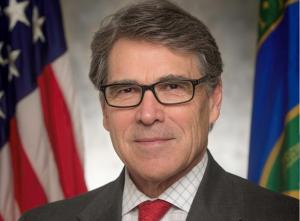Perry on Energy Security

Rick Perry, secretary of the U.S. Department of Energy (DOE), released a statement regarding President Trump’s recent Executive Order (EO) promoting energy independence and economic growth. In the statement, Secretary Perry said that his agency has identified several factors that have adversely impacted domestic energy development and use, and he offered various recommendations for eliminating or minimizing those barriers. Among the steps advocated by the secretary are the following:
- Streamlining natural gas exports;
- Reviewing national laboratory policies;
- Reevaluating regulations established under the National Environmental Policy Act (NEPA); and
- Reassessing DOE’s appliance standards program.
Secretary Perry related that on March 28, 2017, the president had signed EO 13783, which required the heads of all agencies to review all of their existing rules, regulations, orders, guidance documents, policies, and any other similar agency actions that potentially burden the development or use of domestically produced energy resources, with particular attention to oil, natural gas, coal, and nuclear energy resources.
While the secretary distilled DOE’s recommendations into the four broad areas listed above, he provided some additional context for those suggestions. For example, with regard to NEPA, Secretary Perry maintained that there was ample room to streamline and simplify DOE’s “external” regulations while also improving the effectiveness and efficiency of its internal operations. One way to do that, he said, was to grant more categorical exclusions from NEPA requirements.
Moving on to DOE’s appliance standards program, Secretary Perry posed the possibility of transitioning away from setting formal energy-efficiency standards, relying instead on “voluntary, non-regulatory, and market-based alternatives.”



